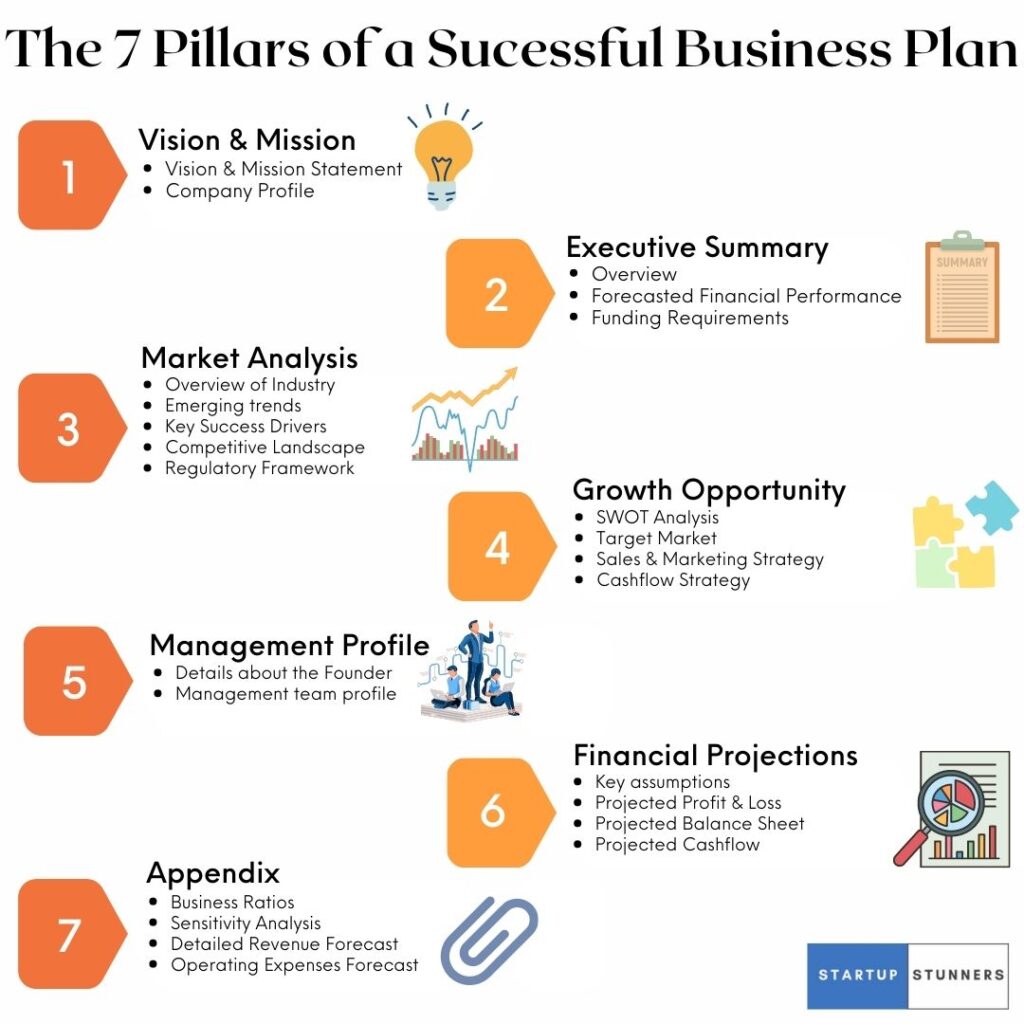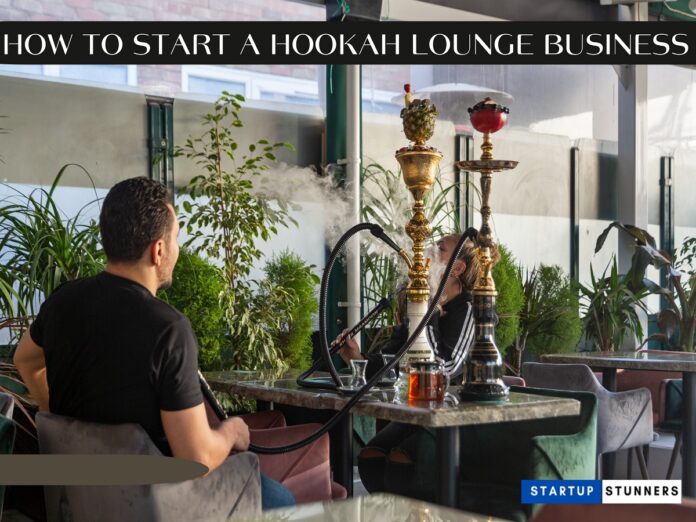A hookah lounge is a gathering place where people smoke flavored tobacco from a water pipe known as a hookah. Hookah lounges are popular in many parts of the world, including the United States, where college students and young adults frequent them.
Hookah lounges are a unique and profitable industry that provides its customers with a social and relaxed atmosphere. Hookah lounges typically sell flavored tobacco, drinks, and snacks. Some lounges serve food, provide live entertainment, or host special events.
The goal of this blog post is to provide a comprehensive guide on how to open a hookah lounge in the United States. This guide will go over all of the steps and considerations that must be made when opening a hookah lounge, such as market research, legal requirements, location and setup, marketing and promotion, and financial management. The goal is to assist aspiring hookah lounge owners in navigating the industry’s complexities and creating a successful and profitable business.
Quick Overview
| Description | Key Points | Estimated Cost | Timeframe | Challenges | Tips & Tricks |
|---|---|---|---|---|---|
| Step 1: Market Research for Hookah Lounge Business | Analyze the target market and competition | $500 – $2,000 | 2-4 weeks | – Identifying target audience and market trends | Utilize online research tools, conduct surveys and interviews |
| Step 2: Create a Business Plan | Outline business goals, strategies, and financial projections | $1,000 – $5,000 | 2-3 months | – Developing a comprehensive and realistic plan | Contact Professional Business Plan Writer |
| Step 3: Startup Cost and Recurring Expenses | Determine initial investment and ongoing expenses | $50,000 – $200,000+ | Varies based on location and scale | – Estimating costs accurately and securing financing | Obtain multiple quotes, negotiate prices, budget meticulously |
| Step 4: Consider Legal Requirements | Understand local regulations, permits, and licenses | $1,000 – $10,000 | 2-4 weeks | – Navigating legal complexities and obtaining necessary permits | Seek legal counsel, research local regulations thoroughly |
| Step 5: Location and Setup | Find a suitable location and set up the physical space | $50,000 – $300,000+ | 1-3 months | – Finding a high-traffic area and negotiating lease terms | Consider foot traffic, accessibility, and competition |
| Step 6: Designing the Lounge | Create an inviting and comfortable ambiance | $10,000 – $50,000 | 1-2 months | – Balancing aesthetics with functionality | Hire professional designers, focus on customer comfort |
| Step 7: Human Resources | Hire and train staff | Ongoing expense | Varies based on staff size and wages | – Finding qualified and experienced employees | Conduct thorough interviews, provide effective training |
| Step 8: Insurance | Obtain necessary insurance coverage | $2,000 – $5,000 per year | Ongoing expense | – Identifying the right insurance coverage for the business | Consult with insurance specialists, compare quotes |
| Step 9: Marketing and Promotion | Develop strategies to attract customers | $5,000 – $20,000+ per year | Ongoing expense | – Standing out in a competitive market | Utilize social media, partnerships, and targeted campaigns |
| Step 10: Revenue Streams | Identify potential income sources | Varies based on business model | Ongoing | – Maximizing revenue and profitability | Offer unique experiences, upsell products and services |
Step 1: Market Research for Hookah Lounge Business
According to IBISWorld, the US market for hookah lounges is growing, with an estimated revenue of $1.1 billion in 2021. The industry has been steadily growing in recent years, thanks in part to the popularity of flavored tobacco and an increase in young adults seeking alternative forms of entertainment and socialization. Hookah Tobacco Market size was valued at USD 1,811.16 Million in 2019 and is projected to reach USD 3,233.49 Million by 2027, growing at a CAGR of 8.21% from 2021 to 2027.
The target audience for hookah lounges in the US is typically young adults, ages 18-34, who are looking for a social and relaxed atmosphere to enjoy flavored tobacco with friends. Hookah lounges also attract a diverse range of people, including those from Middle Eastern and Mediterranean cultures where hookah smoking is a traditional practice.
The hookah lounge industry in the United States is highly competitive, with many lounges vying for customers’ attention. However, there are several key market players who have established themselves as popular and successful businesses. Among the industry’s major players are:
- Hookah-Shisha – A popular online retailer of hookah products that also runs a successful hookah lounge in Austin, Texas.
- Hookah Me Up – A hookah lounge chain with locations in New York and New Jersey.
- Koyla Kitchen – A chain of hookah lounges and restaurants with locations in California and Texas.
- The Hookah Spot – A popular hookah lounge chain with locations in California and Arizona.
- The Hookah Lounge – A chain of hookah lounges with locations in several states, including California, Illinois, and New York.
As an aspiring hookah lounge owner, it is critical to research and analyses the competition in your local market to determine how to differentiate your business and stand out from the crowd. This can include offering unique flavors of tobacco, hosting special events, or creating a unique ambiance and atmosphere in your lounge.
Step 2: Create a Business Plan
A business plan is an essential tool for any entrepreneur looking to start a new business, including a hookah lounge. A business plan outlines the company’s objectives, strategies, and financial projections, providing a road map for the entrepreneur to follow as they launch and operate their business.

Startup Stunners has been providing top-notch business plan writing services for years, and we’re ready to help you create a comprehensive, effective plan that will propel your business forward.
Our team of experts is dedicated to helping you achieve your business goals and secure funding from banks, grants, or other sources. Whether you’re a beginner, entrepreneur, or small business owner, we’re here to help you succeed. Don’t wait any longer, visit startupstunners.com/contact-us/ today and let us guide you on the path to success!
Step 3: Startup Cost and Recurring Expenses
Startup Costs:
To build the infrastructure, buy necessary equipment, and cover other necessary expenses, a hookah lounge requires an initial investment. Here are some important initial costs to consider, as well as anticipated average costs for each component:
a. Lease or Rent: Rental fees can vary greatly depending on your location, size, and demand. Expect to budget $2,000 to $5,000 per month for lease or rent expenses.
b. Renovations and Interior Design: A successful hookah club must have an enticing and comfortable ambience. The costs might range from $10,000 to $30,000 or more, depending on the scale of the modifications and design components.
c. Hookahs and Accessories: It is critical to invest in an adequate number of high-quality hookahs, bowls, hoses, and other accessories. Depending on the seating capacity of your lounge, budget $5,000 to $10,000 for the first purchase of hookahs and accessories.
d. Ventilation and Air Purification: To maintain a smoke-free and healthful environment, suitable ventilation and air purification systems are required. Installation or upgrade costs for these systems might range from $5,000 to $10,000 or more.
e. Sound System and Entertainment: Improving your clients’ entire experience with a decent sound system and entertainment alternatives may cost between $3,000 and $8,000, depending on your preferences and requirements.
f. Licenses and Permits: Obtaining the requisite licenses and permits may necessitate application costs or legal fees ranging from $500 to $2,000, depending on local rules.
g. Marketing and Advertising: It is critical to allocate a budget for marketing and advertising initiatives in order to attract customers. Budget $1,000 to $5,000 for initial marketing expenses, depending on the scale and techniques used.
Recurring Expenses:
Once your hookah lounge is up and running, you will incur recurring expenses to keep everyday operations operating smoothly and to provide a high-quality experience. Here are some examples of recurrent expenses, along with projected typical costs:
a. Lease rental: Monthly rental or lease fees for your hookah lounge premises will be a big recurrent expense. Depending on the location and size of your lounge, budget between $2,000 and $5,000 per month.
a. Utilities: Include costs for power, water, gas, and other utility expenses in your budget. Monthly utility costs might range from $500 to $1,000 on average.
c. Inventory and Supplies: You will need to replace your hookah tobacco, charcoal, disposable mouthpieces, cleaning supplies, and other consumables on a regular basis. Monthly inventory and supply costs might range from $1,000 to $3,000, depending on the volume of business.
d. Employee Salaries or salaries: Salaries or salaries for your workers, including bartenders, servers, and hookah preparers, should be regarded recurrent expenses. The cost of staffing will vary depending on the number of employees and local wage rates. Staffing costs should be estimated at $3,000 to $8,000 per month.
e. Maintenance and Repairs: To provide a well-maintained and comfortable atmosphere, routine maintenance and periodic repairs for equipment, furnishings, and facilities should be planned for. Budget $500 to $1,000 each month for maintenance and repairs on average.
b. Marketing and Advertising: Ongoing marketing efforts to recruit new clients and keep current ones will necessitate ongoing investment. Budget $500 to $2,000 per month for marketing and advertising expenses, depending on the scale and techniques used.
g. Insurance: Obtaining appropriate insurance coverage, such as liability insurance, is critical for protecting your organization and mitigating risks. Insurance costs vary depending on things such as the size of your lounge and the coverage you desire. Estimate insurance costs at $200 to $500 per month.
h. Miscellaneous Expenses: Additional expenses may include accounting services, legal advice, software subscriptions, and other miscellaneous costs related to running a hookah lounge. These costs can vary greatly depending on the needs of the specific firm. It’s a good idea to set aside $200 to $500 every month for various expenses.
Step 4: Consider Legal Requirements
Starting a hookah lounge business necessitates compliance with several legal requirements. To avoid legal issues that could jeopardize the company’s success, it is critical to understand and comply with all relevant regulations.
A. Business Registration
The first step in opening a hookah lounge is to register the business with the appropriate government agencies. This includes registering the business name, obtaining a tax ID number, and obtaining any necessary permits and licenses.
- Business Name Registration: The business name must be registered with the state government, typically through the Secretary of State’s office. This ensures that the business name is unique and not already in use by another company.
- Tax ID Number: For tax purposes, the company must obtain a tax ID number from the Internal Revenue Service (IRS).
- Permits and Licenses: The company must obtain any necessary permits and licenses from local and state government agencies. Permits and licenses will be required depending on the location of the business and the specific regulations of the state and local governments.
B. Permits and Licenses
In addition to registering the business with the government, a hookah lounge business must also obtain the necessary permits and licenses required by local and state agencies. These permits and licenses ensure that the business complies with health and safety regulations and that it is legally permitted to sell tobacco products.
- Tobacco License: Tobacco licenses are required for businesses that sell tobacco products, including hookah lounges. The requirements for a tobacco license vary by state, but typically include an application process and payment of a fee. The license must be renewed annually.
- Health Permit: A health permit is required to operate a food service establishment, which may be required if the hookah lounge serves food or drinks. The requirements for a health permit vary by state and locality, but typically include an inspection of the premises to ensure compliance with health and safety regulations.
- Business License: In most states, all businesses are required to obtain a general business license. The requirements for a business license vary by state and municipality, but typically include an application process and payment of a fee.
- Building Permit: A building permit may be required if the business is making structural changes or renovations to the building. The requirements for a building permit vary by state and locality, but typically involve an application process and payment of a fee.
- Zoning Permit: A zoning permit may be required to ensure that the hookah lounge’s location complies with zoning regulations. The requirements for a zoning permit vary by state and municipality, but typically include an application process and payment of a fee.
- Fire Department Permit: A fire department permit may be required to ensure that the hookah lounge complies with fire safety regulations. The requirements for a fire department permit vary by state and municipality, but typically include an inspection of the premises to ensure compliance with fire safety regulations.
- Music and Entertainment License: If the hookah lounge plans to host live music or other entertainment events, a music and entertainment license may be required. The requirements for a music and entertainment license vary by state and municipality, but typically include an application process and payment of a fee.
C. Complying with State and Federal Regulations
A hookah lounge must follow all state and federal regulations. Compliance with regulations is critical in order to avoid legal issues and penalties that could jeopardies the company’s success.
- State Regulations: State regulations for hookah lounges vary by state, but typically include restrictions on smoking indoors, age limits for customers, and health and safety requirements. To avoid legal issues, it is critical to research and follow all relevant state regulations.
- Federal Regulations: Hookah lounge businesses must follow federal regulations governing the sale and distribution of tobacco products. The Food and Drug Administration (FDA) of the United States regulates the manufacture, distribution, and marketing of tobacco products. The FDA requires tobacco products to bear health warnings and has implemented regulations to limit youth access to tobacco products. To avoid legal issues and penalties, hookah lounge operators must follow these regulations.
- Tax Regulations: Hookah lounge businesses must adhere to federal and state tax regulations. This includes collecting and remitting sales taxes, as well as filing federal and state tax returns. To avoid legal issues and penalties, it is critical to understand and follow all relevant tax regulations.
- Employment Regulations: Hookah lounge businesses must follow state and federal employment regulations, such as minimum wage requirements, overtime pay, and anti-discrimination laws. To avoid legal issues and penalties, it is critical to understand and follow all relevant employment regulations.
- Accessibility Regulations: Hookah lounges must follow federal and state accessibility regulations, including the Americans with Disabilities Act (ADA). This includes making accessible facilities and services available to customers with disabilities.
Learn more about licensing requirements in your state by visiting SBA’s reference to state licenses and permits.
Step 5: Location and Setup
Choosing the right location is critical to the success of a hookah lounge business. Here are some things to think about when deciding on a location:
- Demographics and Foot Traffic: The demographics of the area, as well as the amount of foot traffic, are important considerations. The location should be in an area with a high concentration of potential customers, such as college campuses, downtown areas, or areas with a large population of young adults.
- Space Requirements: Another important consideration is the size of the location. The hookah lounge should be large enough to comfortably accommodate customers, with enough space for seating, hookah equipment, and other furnishings. The space should also allow for proper ventilation and adhere to all relevant health and safety regulations.
- Rent and leasing: The cost of rent or leasing is an important consideration because it will have a significant impact on the business’s expenses. It is critical to choose a location that is both affordable and meets the needs of the business.
- Other factors – Additional factors to consider when choosing a location include parking availability, public transportation accessibility, and proximity to other businesses and attractions.
Once a location has been selected, the hookah lounge’s setup should be carefully planned to ensure a comfortable and enjoyable experience for customers. This may include seating arrangement, hookah equipment arrangement, and music and lighting selection. The setup should also adhere to all relevant health and safety regulations, including proper ventilation and fire safety measures.
Step 6: Designing the Lounge
- Décor and Ambiance: The décor and ambiance of the hookah lounge are important factors in creating a comfortable and enjoyable experience for customers. The décor should be welcoming and reflect the lounge’s theme or atmosphere. The use of comfortable seating, mood lighting, and decorative elements can help to create a relaxing and enjoyable environment.
- Furniture and Equipment: The furniture and equipment in the hookah lounge should be carefully selected to ensure comfort and functionality. This may include the use of comfortable seating, tables, and hookah equipment. Hookah equipment should be of high quality and regularly maintained to provide customers with the best possible smoking experience.
- Hookah and Tobacco Selection: The choice of hookahs and tobacco is critical to the business’s success. Hookahs should be of high quality and offer a variety of options to suit the preferences of customers. To provide a variety of flavours and brands, the tobacco selection should be carefully curated. It is important to regularly update the selection of hookahs and tobacco to keep customers interested and coming back.
Other factors to consider when opening a hookah lounge include the selection of music and entertainment, the availability of food and beverages, and the use of marketing and promotions to attract customers. It is critical to assess and adjust the lounge’s setup and offerings on a regular basis to ensure the best possible experience for customers and the business’s continued success.
Step 7: Human Resources
The success of a hookah lounge business is also dependent on having the right staff. Here are some things to think about when hiring employees:
- Hiring: Choosing the right employees is critical to the company’s success. The staff should be knowledgeable about hookah and tobacco, as well as customer service. Hiring staff with prior industry experience can be advantageous, but it is also important to look for qualities such as a positive attitude, strong communication skills, and the ability to work in a team.
- Training: Once employees have been hired, it is critical to provide them with proper training. This could include hookah and tobacco training, customer service, and health and safety regulations. Ongoing training should also be provided to ensure that employees are up to date on the latest products and industry trends.
- Scheduling: Proper scheduling is essential for ensuring that the business is adequately staffed during peak periods. This may entail developing a flexible schedule and identifying peak times when additional staff may be required. Scheduling should also take into account any applicable labor laws and regulations.
Step 8: Insurance
Obtaining insurance is an important part of starting a hookah lounge business. Insurance protects a company’s assets and customers in the event of an accident, injury, or other unforeseen event. Here are some insurance options for hookah lounges:
- General Liability Insurance: General liability insurance covers injuries, property damage, and other liability claims that may arise from the operation of the business. This type of insurance is required for any business that interacts with customers.
- Property Insurance: Property insurance protects the business’s property, such as the building, furniture, and equipment. This type of insurance is critical for safeguarding the assets of the business.
- Workers’ Compensation Insurance: Workers’ compensation insurance covers workplace injuries. Most states require this type of insurance for businesses that employ people.
- Liquor Liability Insurance: Liquor liability insurance covers damages or injuries caused by intoxicated customers. This type of insurance is especially important for hookah lounges that serve alcohol.
- Umbrella Insurance: Umbrella insurance extends coverage beyond the limits of the other insurance policies. This type of insurance is recommended for businesses with high-risk operations, such as hookah lounges.
Step 9: Marketing and Promotion
Marketing and promotion are critical for the success of any business, including a hookah lounge. Here are some things to think about when developing a marketing and promotion strategy:
- Branding: Branding is an important aspect of a business that can help it stand out from competitors. This could include coming up with a unique name and logo, as well as developing a brand identity that reflects the lounge’s theme and atmosphere. Branding should be consistent across all marketing materials and promotions.
- Social media marketing: In today’s digital age, social media is a powerful marketing and promotion tool. Having a social media presence can help to raise awareness of the hookah lounge and engage potential customers. This may entail creating and regularly updating social media profiles on platforms such as Facebook, Instagram, and Twitter, as well as creating engaging content that encourages likes, shares, and follows.
- Events and promotions: Hosting events and promotions can help to attract new customers and encourage repeat business. This may include hosting special events such as live music, themed nights, or hookah contests, as well as offering promotions such as discounts or freebies to customers who refer friends or visit the lounge during off-peak hours.
- Word-of-mouth advertising: Word-of-mouth advertising is a powerful marketing tool that can help to build a loyal customer base. Encourage satisfied customers to leave online reviews or refer friends to the lounge to help increase visibility and attract new customers.
Step 10: Revenue Streams
Creating multiple revenue streams can help to ensure the financial success of a hookah lounge business. Consider the following revenue streams:
- Hookah sales: Hookah sales are the main source of revenue for a hookah lounge. It is critical to set competitive hookah rental prices and to ensure that the hookah and tobacco are of high quality. Offering a variety of flavors can also help to attract customers and encourage repeat business.
- Food and beverage sales: To supplement their primary revenue stream, many hookah lounges sell food and beverages. This could include serving snacks, appetizers, and beverages such as coffee, tea, and soft drinks. Some hookah lounges may also provide a full menu of meals and alcoholic beverages, though this may necessitate additional permits and licenses.
- Merchandise sales: Selling hookah-related merchandise such as hoses, bowls, and accessories can also be a source of revenue for a hookah lounge business. It is critical to choose high-quality merchandise that is relevant to the target market and to price items competitively.
Calculating the right pricing strategy is crucial for the success of any hookah lounge business. It directly affects your revenue streams and profitability. To help you with this important aspect, we have developed a convenient tool on our website. Our pricing calculator allows you to determine the optimal price for your hookah lounge services based on a markup basis. Access our pricing calculator tool to simplify the process and ensure you are setting competitive and profitable prices for your hookah lounge
Step 11: Profit and loss management
Profit and loss management is an important aspect of running any business, including a hookah lounge. Here are some factors to consider when managing profit and loss:
- Cost control: Controlling costs is essential to maintaining profitability. This may entail identifying areas where costs can be reduced without sacrificing quality or service, negotiating with suppliers to secure lower prices, and monitoring expenses to identify areas where costs are exceeding projections.
- Financial reporting: Maintaining accurate financial records and reporting on a regular basis can assist in identifying areas where the business is profitable and where it may need to improve. This may entail using accounting software to track income and expenses, creating profit and loss statements on a regular basis, and analyzing financial data to identify areas where adjustments can be made.
To make informed decisions for your business, you need to track your finances and understand your revenue and expenses. Our Net Profit Calculator can help you do just that – simply input your revenue and expenses, and the calculator will tell you your net profit. This calculator is a useful tool for staying on top of your finances and making data-driven decisions for your business.
Conclusion
Starting a hookah lounge business can be a difficult but rewarding endeavor. Entrepreneurs can increase their chances of success for their hookah lounge business by following the steps outlined in this blog post, which include developing a comprehensive business plan, complying with legal requirements, selecting the right location and setup, implementing effective marketing and promotion strategies, and effectively managing finances.
Starting a hookah lounge requires careful planning, attention to detail, and a dedication to excellence. With the right approach, entrepreneurs can turn their vision into a successful and profitable business venture.
Frequently Asked Questions
What exactly is a hookah lounge business?
A hookah lounge is a type of establishment where customers can smoke flavored tobacco through a water pipe or hookah. Hookah lounges typically provide a relaxed environment for customers to socialize, drink beverages, and eat snacks or meals.
What legal requirements must be met in order to open a hookah lounge?
Legal requirements for opening a hookah lounge vary by state and municipality, but typically include business registration, permits and licenses, compliance with state and federal regulations, and insurance.
How do I choose the best location for my hookah lounge?
When deciding on a location for a hookah lounge, it is critical to consider factors such as demographics and foot traffic, space requirements, rent and leasing, and competition in the area.
How do I create effective marketing and promotion strategies for my hookah lounge?
Branding, social media marketing, events and promotions, and word-of-mouth advertising are all effective hookah lounge marketing and promotion strategies.
What are some potential revenue streams for a hookah lounge?
Hookah sales, food and beverage sales, and merchandise sales are all potential revenue streams for a hookah lounge. Other potential revenue streams include hosting private events, providing delivery services, and collaborating with other businesses or industry influencers.
How do I manage profit and loss in my hookah lounge business?
Managing profit and loss for a hookah lounge business may entail cost control, financial reporting, setting financial goals, and seeking professional financial advice as needed. It is critical to keep accurate financial records and analyze financial data on a regular basis.






